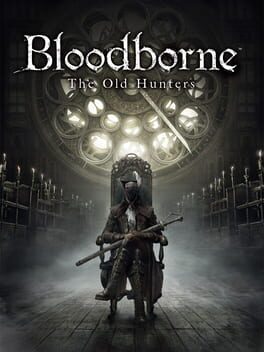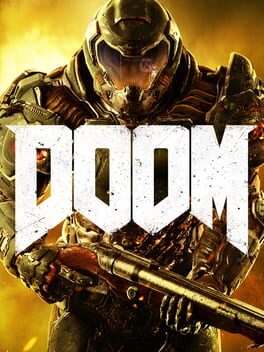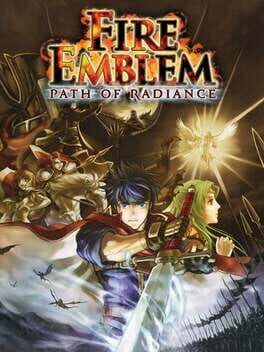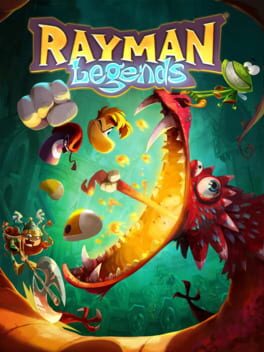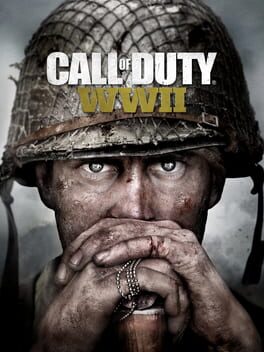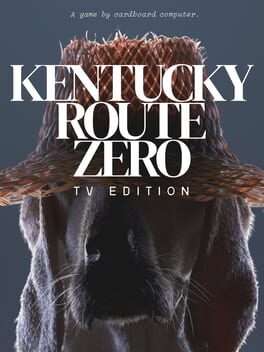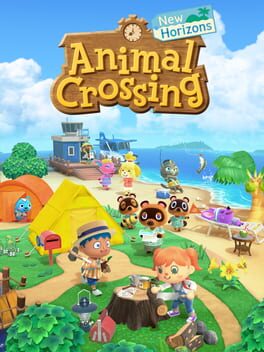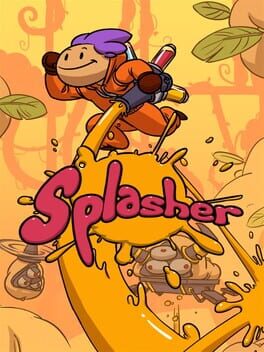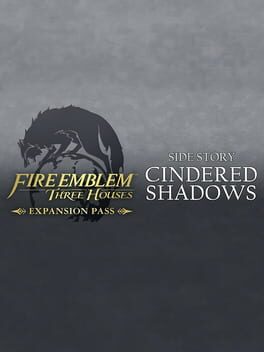chortles
The Old Hunters offers such an essential link to its base game that after playing through a few times, it's hard to even distinguish them as separate products. Good DLC gives you more content to continue and improve upon the core experience, but great DLC does all that while deepening your understanding of and connection to the world that your character occupies. Bloodborne, in the tradition of From Software's approach to DLC, uses its additional content to flesh out its dense lore even further and, for those willing to decipher its disturbing mysteries, recontextualize events and characters at the heart of Bloodborne's story in captivating ways.
Plunged into The Hunter's Nightmare, you begin to make your way through a hellish inversion of an area you'll be familiar with from the base game: The Cathedral Ward. Standing in the place of its usual guardians though are dangerous, hostile hunters — those who have been cast down from the waking world into this sort of purgatory, likely for sins committed under Ludwig, the founder of the church hunters (and the first major boss you will take down in this area). As with many hunters, his intentions were good in the beginning, but as the scourge grew, he fell to the same bloodlust that took so many people and became an abhorrent beast…
It's easy to go and on and on about the immense lore implications revealed in The Old Hunters, but it unravels in such fascinating ways that are best left to be discovered firsthand. As side content that attempts to fill in some of Bloodborne's missing pieces (while introducing plenty of new questions of its own), it's fitting that The Old Hunters is defined by a sense of well-guarded secrecy. Even accessing the DLC is hidden away, found only by those who are specifically looking for it or by a lucky few who may stumble into it by accident. Further in, you meet Lady Maria, a person so key in shaping the events that take place in Bloodborne; she bemoans the hidden past you are uncovering, warning that "a corpse should be left well alone" and that she of all people knows "how the secrets beckon so sweetly." Director Hidetaka Miyazaki and his team are so good at creating intrigue through vague storytelling, never revealing concrete details and instead leaving us to reflect over characters' mysterious ruminations and their implications. Combined with this is typically impeccable environmental storytelling—their use of item descriptions, enemy design and placements, and level design to convey details of the world—with which From Software harnesses the unique qualities of games to give a confounding level of depth to their stories.
That is to say that the majority of this dense storytelling is naturally weaved into an actual game, and it's a damn good one at that. The Old Hunters offers an immensely challenging and atmospheric experience that rivals anything From Software have put out. The environments you traverse exude haunting beauty at every step, and the enemies you face are sublimely grotesque creations. Its levels are compelling as ever to explore (particularly the labyrinthine Research Hall, which is just a marvel of level design) and the boss fights are beyond incredible, pushing the players' skills to a level previously unseen in the base game and providing for moments of pure, unfettered adrenaline to take hold. If Bloodborne got anything right though, it was its dedication to its Victorian setting and the gnarly mix of Gothic and Lovecraftian horror that takes hold of it, all of which is translated in high form to its expansion.
All of this is simply to say that without The Old Hunters, there is no Bloodborne. Of course it exists and succeeds as a game on its own, but that The Old Hunters expands Bloodborne's already masterful game design with such exceptional, meaningful content makes the base game feel incomplete without it. Essential.
Plunged into The Hunter's Nightmare, you begin to make your way through a hellish inversion of an area you'll be familiar with from the base game: The Cathedral Ward. Standing in the place of its usual guardians though are dangerous, hostile hunters — those who have been cast down from the waking world into this sort of purgatory, likely for sins committed under Ludwig, the founder of the church hunters (and the first major boss you will take down in this area). As with many hunters, his intentions were good in the beginning, but as the scourge grew, he fell to the same bloodlust that took so many people and became an abhorrent beast…
It's easy to go and on and on about the immense lore implications revealed in The Old Hunters, but it unravels in such fascinating ways that are best left to be discovered firsthand. As side content that attempts to fill in some of Bloodborne's missing pieces (while introducing plenty of new questions of its own), it's fitting that The Old Hunters is defined by a sense of well-guarded secrecy. Even accessing the DLC is hidden away, found only by those who are specifically looking for it or by a lucky few who may stumble into it by accident. Further in, you meet Lady Maria, a person so key in shaping the events that take place in Bloodborne; she bemoans the hidden past you are uncovering, warning that "a corpse should be left well alone" and that she of all people knows "how the secrets beckon so sweetly." Director Hidetaka Miyazaki and his team are so good at creating intrigue through vague storytelling, never revealing concrete details and instead leaving us to reflect over characters' mysterious ruminations and their implications. Combined with this is typically impeccable environmental storytelling—their use of item descriptions, enemy design and placements, and level design to convey details of the world—with which From Software harnesses the unique qualities of games to give a confounding level of depth to their stories.
That is to say that the majority of this dense storytelling is naturally weaved into an actual game, and it's a damn good one at that. The Old Hunters offers an immensely challenging and atmospheric experience that rivals anything From Software have put out. The environments you traverse exude haunting beauty at every step, and the enemies you face are sublimely grotesque creations. Its levels are compelling as ever to explore (particularly the labyrinthine Research Hall, which is just a marvel of level design) and the boss fights are beyond incredible, pushing the players' skills to a level previously unseen in the base game and providing for moments of pure, unfettered adrenaline to take hold. If Bloodborne got anything right though, it was its dedication to its Victorian setting and the gnarly mix of Gothic and Lovecraftian horror that takes hold of it, all of which is translated in high form to its expansion.
All of this is simply to say that without The Old Hunters, there is no Bloodborne. Of course it exists and succeeds as a game on its own, but that The Old Hunters expands Bloodborne's already masterful game design with such exceptional, meaningful content makes the base game feel incomplete without it. Essential.
2015
2016
I think too much. This has been the case for as long as I can remember, an unfortunate lifelong trait that fuels the train of thought endlessly careening around my head. As a working adult, playing games offers a much needed respite from the stresses and worries of the outside world, but it only does so for as long as it can hold my attention and keep extraneous thoughts from dominating my headspace.
For me then, one of the more infuriating signifiers of the modern AAA climate is a tendency of developers to intermittently take control away from the player. There's perhaps nothing more effective at breaking up a game's flow or your immersion in it than the 20th tutorial tip or an ill-timed cutscene that halts any sense of momentum; when these crop up, my focus is instantly shattered and my thoughts drift from what's on screen to what I should make for dinner, or my dog's vet appointment, or Trump's handling of the coronavirus outbreak… and so on. From this frustration I've at least gained a greater appreciation for games that don't put up any barriers preventing you from just jumping head first into the experience and making it your own.
One of Doom's defining qualities is that it mostly sets aside this form of videogame baggage—literalized in an early scene in which Doom Guy violently pushes aside a monitor that someone is spouting needless exposition from—which is honestly its own form of catharsis for me.
It becomes clear shortly after that it's all about the gameplay: a high-octane shooter in which you wield an unholy barrage of heavy weaponry to disembowel score after score of demons as you attempt to keep separate the world of living and that of hell. Or something like that—I mean does it really matter?
I've drifted away from first-person shooters as I've gotten older and many of them have similar struggles to retain my attention—too much time spent crouching behind cover, lining up the perfect shot, listening to mission briefings and so on. There's a stripped back approach to Doom which circumvents these issues, with each combat encounter providing escalating doses of adrenaline that will have you bouncing around arenas and blasting demons away without second thought. This is perhaps its most valuable asset—the speed and intensity with which fights are carried out means the only option for me is to turn big brain off and let pure instinct take over. I can't think too much or get distracted when I play Doom. I just play.
Beyond the simple beauty of that, I was taken with how many smaller pieces of the game deftly lock into place to bolster that fantastic gameplay loop. The pacing is well-tuned, as periods of traversal and optional exploration provide respite after hectic combat scenarios. Upgrades to your arsenal are surprisingly meaningful and inform the way you play the game, as you begin to intuit how certain weapons and power-ups play to your advantage against different enemy types. On top of it all is Mick Gordon's heavy metal score that gives Doom its juice (surprise bonus points go to the bits of spacey ambient that delicately underscore some quieter moments).
With the number of sequels and reboots that exist in the industry, it's refreshing to see one with an obvious level of care put behind it. While Doom is not flawless—even while the combat mostly thrilled me throughout, after some time it doesn't feel like there are any more surprises left and some fatigue can set in, among other minor quibbles—my complaints pale in comparison to how much of a pure joy the majority of the game is to experience, a callback to time of the original Doom, when fun was always at the forefront of games. I wish more developers would remember the simple power of that these days.
For me then, one of the more infuriating signifiers of the modern AAA climate is a tendency of developers to intermittently take control away from the player. There's perhaps nothing more effective at breaking up a game's flow or your immersion in it than the 20th tutorial tip or an ill-timed cutscene that halts any sense of momentum; when these crop up, my focus is instantly shattered and my thoughts drift from what's on screen to what I should make for dinner, or my dog's vet appointment, or Trump's handling of the coronavirus outbreak… and so on. From this frustration I've at least gained a greater appreciation for games that don't put up any barriers preventing you from just jumping head first into the experience and making it your own.
One of Doom's defining qualities is that it mostly sets aside this form of videogame baggage—literalized in an early scene in which Doom Guy violently pushes aside a monitor that someone is spouting needless exposition from—which is honestly its own form of catharsis for me.
It becomes clear shortly after that it's all about the gameplay: a high-octane shooter in which you wield an unholy barrage of heavy weaponry to disembowel score after score of demons as you attempt to keep separate the world of living and that of hell. Or something like that—I mean does it really matter?
I've drifted away from first-person shooters as I've gotten older and many of them have similar struggles to retain my attention—too much time spent crouching behind cover, lining up the perfect shot, listening to mission briefings and so on. There's a stripped back approach to Doom which circumvents these issues, with each combat encounter providing escalating doses of adrenaline that will have you bouncing around arenas and blasting demons away without second thought. This is perhaps its most valuable asset—the speed and intensity with which fights are carried out means the only option for me is to turn big brain off and let pure instinct take over. I can't think too much or get distracted when I play Doom. I just play.
Beyond the simple beauty of that, I was taken with how many smaller pieces of the game deftly lock into place to bolster that fantastic gameplay loop. The pacing is well-tuned, as periods of traversal and optional exploration provide respite after hectic combat scenarios. Upgrades to your arsenal are surprisingly meaningful and inform the way you play the game, as you begin to intuit how certain weapons and power-ups play to your advantage against different enemy types. On top of it all is Mick Gordon's heavy metal score that gives Doom its juice (surprise bonus points go to the bits of spacey ambient that delicately underscore some quieter moments).
With the number of sequels and reboots that exist in the industry, it's refreshing to see one with an obvious level of care put behind it. While Doom is not flawless—even while the combat mostly thrilled me throughout, after some time it doesn't feel like there are any more surprises left and some fatigue can set in, among other minor quibbles—my complaints pale in comparison to how much of a pure joy the majority of the game is to experience, a callback to time of the original Doom, when fun was always at the forefront of games. I wish more developers would remember the simple power of that these days.
Like other From Software games, Sekiro is all ups and downs. It draws you in, breaks you down, forces you to play by its rules and, finally, teaches you to adapt and overcome. The level of satisfaction one can feel from doing so cannot be overstated—it's one aspect (among others) that hooks so many people while keeping just as many at arm's length.
In one sense, Sekiro is more of the same then—a precise, challenging third person action game that certainly keeps the intangible feel of a From Software game close to its heart—but makes plenty of departures, large and small. Speed and mobility are top priority here, with fluid movement, fast combat and the ability to jump and swing around large, open spaces with a nifty grappling hook. Streamlined stealth gameplay is sprinkled in to shake up your approach to combat encounters, while RPG elements have been largely stripped away to keep the focus on a very tightly defined type of action game. Health has been supplemented with Posture, an ingenious mechanic that forces the player to attack with relentless well-timed strikes and deflections in order to break an enemy's posture and land a killing blow. It's so, so smart, and translates beautifully in motion; many games have attempted to capture the back and forth thrill of a duel between masters of the sword, but to my mind, none have done so with nearly as much grace as Sekiro.
As I was attempting to overcome the massive hurdle that is Sekiro's last boss, a realization finally occurred to me that the joint effect of all these changes represents so much more than From Software just shaking up the formula. There is genuine evolution in the design of dynamic combat that can be traced here, not only for their brand of games but within the sphere of action games as a whole.
At that point, I must have been at least fifty attempts deep on Sword Saint Isshin, finally putting him on the ropes and feeling like the stronger contestant after being endlessly slapped around. I first improved by learning the attacks and movements of each phase and adapting my strategy accordingly. Nothing new there, but it is precisely when I started gaining the advantage that I realized how much my behavior was actively influencing the way the fight played out. See, in Dark Souls, you waited for openings, took advantage of them in that brief window and then went back on defense; in Sekiro, it's up to you to carve out those openings and exploit them, and the game's fights are superbly tuned around this conceit. Reactive vs proactive. It's a tune-up more than an overhaul to be sure, but the difference is deeply felt.
Isshin's second phase dominated me for a long time as he unleashed flurries of attacks that, in my panic, had me retreating and frantically attempting to parry at every moment, without the guts needed to pull off effective counterattacks. He exploited my timid behavior and punished me for it, never giving me space to recover in the midst of his endless attacks and pushing me to make mistakes. In this mode, it didn't take long for him to put me face first in the dirt with each attempt. What's incredible though was being able to create a reversal as I slowly gained confidence—at some point, I was able to start hammering him with quick, precise strikes, and witnessed his approach to the fight completely shift. He became overly reliant on a sweeping attack to fling himself backwards, giving him space to escape and defend himself as I laid on attack after attack, and—despite his ability to quickly take me down should I make a mistake—he seemed more frantic, and defensive than ever. He simply didn't have the chance to wear me down like before. I created the upper-hand for myself, and I could exploit his reactions to my aggressive attack pattern, just as he did to me.
And so finally, something seemingly insurmountable became attainable, understood. Shortly after, Isshin fell. "…well done, Sekiro." Bliss.
It's a little thing, this fluidity in the back and forth exchange between Isshin and myself, but it didn't feel little. It felt like a revelation. The beauty of this truly dynamic gameplay defines the essence of Sekiro for me, and this sequence of struggle, realization and triumph in its final moments is perhaps the purest way such an experience could be capped off.
In one sense, Sekiro is more of the same then—a precise, challenging third person action game that certainly keeps the intangible feel of a From Software game close to its heart—but makes plenty of departures, large and small. Speed and mobility are top priority here, with fluid movement, fast combat and the ability to jump and swing around large, open spaces with a nifty grappling hook. Streamlined stealth gameplay is sprinkled in to shake up your approach to combat encounters, while RPG elements have been largely stripped away to keep the focus on a very tightly defined type of action game. Health has been supplemented with Posture, an ingenious mechanic that forces the player to attack with relentless well-timed strikes and deflections in order to break an enemy's posture and land a killing blow. It's so, so smart, and translates beautifully in motion; many games have attempted to capture the back and forth thrill of a duel between masters of the sword, but to my mind, none have done so with nearly as much grace as Sekiro.
As I was attempting to overcome the massive hurdle that is Sekiro's last boss, a realization finally occurred to me that the joint effect of all these changes represents so much more than From Software just shaking up the formula. There is genuine evolution in the design of dynamic combat that can be traced here, not only for their brand of games but within the sphere of action games as a whole.
At that point, I must have been at least fifty attempts deep on Sword Saint Isshin, finally putting him on the ropes and feeling like the stronger contestant after being endlessly slapped around. I first improved by learning the attacks and movements of each phase and adapting my strategy accordingly. Nothing new there, but it is precisely when I started gaining the advantage that I realized how much my behavior was actively influencing the way the fight played out. See, in Dark Souls, you waited for openings, took advantage of them in that brief window and then went back on defense; in Sekiro, it's up to you to carve out those openings and exploit them, and the game's fights are superbly tuned around this conceit. Reactive vs proactive. It's a tune-up more than an overhaul to be sure, but the difference is deeply felt.
Isshin's second phase dominated me for a long time as he unleashed flurries of attacks that, in my panic, had me retreating and frantically attempting to parry at every moment, without the guts needed to pull off effective counterattacks. He exploited my timid behavior and punished me for it, never giving me space to recover in the midst of his endless attacks and pushing me to make mistakes. In this mode, it didn't take long for him to put me face first in the dirt with each attempt. What's incredible though was being able to create a reversal as I slowly gained confidence—at some point, I was able to start hammering him with quick, precise strikes, and witnessed his approach to the fight completely shift. He became overly reliant on a sweeping attack to fling himself backwards, giving him space to escape and defend himself as I laid on attack after attack, and—despite his ability to quickly take me down should I make a mistake—he seemed more frantic, and defensive than ever. He simply didn't have the chance to wear me down like before. I created the upper-hand for myself, and I could exploit his reactions to my aggressive attack pattern, just as he did to me.
And so finally, something seemingly insurmountable became attainable, understood. Shortly after, Isshin fell. "…well done, Sekiro." Bliss.
It's a little thing, this fluidity in the back and forth exchange between Isshin and myself, but it didn't feel little. It felt like a revelation. The beauty of this truly dynamic gameplay defines the essence of Sekiro for me, and this sequence of struggle, realization and triumph in its final moments is perhaps the purest way such an experience could be capped off.
I remember being so excited by the prospect of Path of Radiance in the lead up to its release—I was so obsessed with FE7 and Sacred Stones that I must have cleared them at least couple times each already, and was just chomping for more Fire Emblem—but bounced off of it so quickly. The switch to 3D textures and character models was so clunky in a way that seemed antithetical to the beautiful spritework and expressive animations of the GBA titles, and I just couldn't square it. I put it down probably around chapter 10 and forgot about it for a long time.
Picking it up again 15 years later, I'm shocked that the story and characters weren't at least enough to carry me through back then. This thing starts with a bang and handily maintains its momentum for a while, and for some time I was convinced that Path of Radiance is one very best games the series has to offer. The story is exciting, the tactical gameplay is satisfying as ever, and it has a great roster of characters and support conversations. Beyond these elements, which you can typically expect from most quality Fire Emblem games, it also has what is perhaps the best world building of the bunch—the nations, history and inhabitants of Tellius are drawn with such delicacy, and the developers masterfully drip feed the details behind its sociopolitical climate over much of the game. It sets the perfect backdrop to be easily swept up into the story of Ike and his company of mercenaries (a nice deviation from the nobles who typically lead these games as well).
I can't help but think that all this momentum and intrigue dies off considerably in the last third of the game though, when most motivations become known and the focus shifts away from uncovering the history and truths of the world in favor of becoming an all-out offensive against enemy nation of Daein. In fairness, all roads were leading there from the beginning, but there's an abrupt flatness in the execution of this portion that can be so deeply felt considering how great the material that comes before it is. This switch translates to the gameplay as well; despite being one of the easier titles in the series, I found Hard difficulty a satisfying mode until at this point, when my group began to feel so powerful that most deaths could be chalked up to careless mistakes as opposed to poor strategy, and the map design and enemy placement became consistently less interesting as well.
Still, the goodwill it had built up until that point made Path of Radiance compelling enough for me see it through to the end, and I'm glad that I finally did after all these years. While it falls short of being one of the series' best, it is still a very, very good entry that deserves the love it has received over the years.
Picking it up again 15 years later, I'm shocked that the story and characters weren't at least enough to carry me through back then. This thing starts with a bang and handily maintains its momentum for a while, and for some time I was convinced that Path of Radiance is one very best games the series has to offer. The story is exciting, the tactical gameplay is satisfying as ever, and it has a great roster of characters and support conversations. Beyond these elements, which you can typically expect from most quality Fire Emblem games, it also has what is perhaps the best world building of the bunch—the nations, history and inhabitants of Tellius are drawn with such delicacy, and the developers masterfully drip feed the details behind its sociopolitical climate over much of the game. It sets the perfect backdrop to be easily swept up into the story of Ike and his company of mercenaries (a nice deviation from the nobles who typically lead these games as well).
I can't help but think that all this momentum and intrigue dies off considerably in the last third of the game though, when most motivations become known and the focus shifts away from uncovering the history and truths of the world in favor of becoming an all-out offensive against enemy nation of Daein. In fairness, all roads were leading there from the beginning, but there's an abrupt flatness in the execution of this portion that can be so deeply felt considering how great the material that comes before it is. This switch translates to the gameplay as well; despite being one of the easier titles in the series, I found Hard difficulty a satisfying mode until at this point, when my group began to feel so powerful that most deaths could be chalked up to careless mistakes as opposed to poor strategy, and the map design and enemy placement became consistently less interesting as well.
Still, the goodwill it had built up until that point made Path of Radiance compelling enough for me see it through to the end, and I'm glad that I finally did after all these years. While it falls short of being one of the series' best, it is still a very, very good entry that deserves the love it has received over the years.
2013
Not as precise a platformer as your Super Meat Boys or Celestes, but it doesn't need to be; Rayman Legends ignores the focus that subset of the genre places on mastering air-tight core mechanics in favor of having players grapple with the vast array of gameplay ideas thrown at the wall at any given moment through varied, imaginative level design. The sheer number of micro mechanics created this way, which in some cases are already left behind after one or two levels to move on to the next idea, is honestly staggering and gives the game a fresh, ever changing quality throughout that is difficult to rival.
A delight to play through, and that feeling is captured no better than by the sublime music levels that close out each world. These aren't just celebrations of your own achievements in the game, they're celebrations of the unadulterated joy that platformers—or any game, really—can bring us in those rare moments where everything locks into place and feels just right.
A delight to play through, and that feeling is captured no better than by the sublime music levels that close out each world. These aren't just celebrations of your own achievements in the game, they're celebrations of the unadulterated joy that platformers—or any game, really—can bring us in those rare moments where everything locks into place and feels just right.
2017
I've been tapped out of the Call of Duty franchise for most of the past decade and it seems I shouldn't have even let the morbid curiosity of its PS+ freebie status draw me back in.
It's staggering the how much the devs have continued to milk this franchise without offering any meaningful updates to the core experience. What was fun in the halcyon days of Call of Duty 4 (albeit to a 14 year old me) just feels utterly rote and stale now. While the campaign is well crafted enough (aside from setpieces—why are they so damn stiff and clunky?) and the mechanics behind it are tight by virtue of being so tried and true... it's just not interesting anymore, guys. Tack on the story, which the writers and voice actors have approached with a level of such self-serious bro sentimentality that even Zack Snyder would be taken aback, and the experience becomes difficult to appreciate even ironically (a true shame).
The multiplayer is the same as it's always been other than that your people can dance and say dumbass one-liners in the lobby. Just about sums up the evolution of online gaming culture at least.
It's staggering the how much the devs have continued to milk this franchise without offering any meaningful updates to the core experience. What was fun in the halcyon days of Call of Duty 4 (albeit to a 14 year old me) just feels utterly rote and stale now. While the campaign is well crafted enough (aside from setpieces—why are they so damn stiff and clunky?) and the mechanics behind it are tight by virtue of being so tried and true... it's just not interesting anymore, guys. Tack on the story, which the writers and voice actors have approached with a level of such self-serious bro sentimentality that even Zack Snyder would be taken aback, and the experience becomes difficult to appreciate even ironically (a true shame).
The multiplayer is the same as it's always been other than that your people can dance and say dumbass one-liners in the lobby. Just about sums up the evolution of online gaming culture at least.
What impresses me most about Kentucky Route Zero is that despite how liberally it borrows many of its best traits from other mediums, it so clearly could only work as a game. In most games, the camera is an object to manipulate and control, a tool to serve the gameplay above all else. KRZ's use of camera takes more cues from films and cinematic technique than the vast majority of its counterparts, where its slow pans, layered zooms and stark scene transitions are calculated, artistic choices, left out of the players' hands and implemented to elicit specific emotional responses or entrench us deeper in the thick atmosphere of its world. The writing is at a strong literary level which doesn't overcome, but is simply not even concerned with the trap many games fall into of using dialogue as exposition crutches to push their stories further. Plot is secondary to mood and atmosphere in the story of KRZ, with its writers placing all focus on novelistic passages that emphasize detail and imagery, meshing well with the mysterious, unexplainable happenings in the world that are presented audiovisually.
What makes it so vital as specifically a game though? Not an easy question to answer, and KRZ is so elusive and oblique that I imagine it means a lot of things to a lot of people. To me, it's about a few key choices related to interaction—the way you occupy multiple characters, write your own story with well-constructed dialogue choices (another subversion here in that again, this informs the way the story feels moment to moment, rather than giving us any actual agency over how it plays out) and immerses you into its most surreal qualities. There's a wonderfully dense thematic tapestry that is carefully weaved throughout the five acts as well; the throughline that sticks out most as I write this is the lack of control we have over our lives and our situations, the way we don't understand so many things swirling around us, beyond us, but often just accept what we're given with a sigh, moving forward, not looking back. Aren't games, at their most basic level, ultimately about control and pushing forward to what lies ahead?
What makes it so vital as specifically a game though? Not an easy question to answer, and KRZ is so elusive and oblique that I imagine it means a lot of things to a lot of people. To me, it's about a few key choices related to interaction—the way you occupy multiple characters, write your own story with well-constructed dialogue choices (another subversion here in that again, this informs the way the story feels moment to moment, rather than giving us any actual agency over how it plays out) and immerses you into its most surreal qualities. There's a wonderfully dense thematic tapestry that is carefully weaved throughout the five acts as well; the throughline that sticks out most as I write this is the lack of control we have over our lives and our situations, the way we don't understand so many things swirling around us, beyond us, but often just accept what we're given with a sigh, moving forward, not looking back. Aren't games, at their most basic level, ultimately about control and pushing forward to what lies ahead?
It can't be overstated how perfectly timed this game's release was—right as the world was beginning to lock down, people could escape and dive into the always pleasant world of Animal Crossing to replace the sort of normalcy in life that was beginning to drift away. I was hooked from the start and delighted by everything New Horizons was giving me: a daily excuse to relax, relish in its immense charm and carry out menial tasks all focused around building my town up. The conceit of starting on a deserted island made my head spin, with the potential to make the place truly my own, and had me wondering if the series would finally truly sink its hooks into me like it has with so many others.
Little did I know I would drop the game a couple of weeks to a month later, though, with no intentions to return. Honestly I still don't really know why—probably some combination of lacking the time and drive needed to make my town truly blossom in conjunction with the classic Nintendo moves of making so many exceptionally baffling UI and gameplay choices that makes progression feel so mind-numbingly repetitive. Maybe I'll pick it up again, and maybe not, but that's ok. The first weeks with this game were blissful times that I wouldn't trade it for anything, and most of my satisfaction related to this game now comes in the genuine awe of what people putting in massive amounts of time and effort are able to do with it.
Little did I know I would drop the game a couple of weeks to a month later, though, with no intentions to return. Honestly I still don't really know why—probably some combination of lacking the time and drive needed to make my town truly blossom in conjunction with the classic Nintendo moves of making so many exceptionally baffling UI and gameplay choices that makes progression feel so mind-numbingly repetitive. Maybe I'll pick it up again, and maybe not, but that's ok. The first weeks with this game were blissful times that I wouldn't trade it for anything, and most of my satisfaction related to this game now comes in the genuine awe of what people putting in massive amounts of time and effort are able to do with it.
2018
If for nothing else, this has to be commended for so thoughtfully expanding on Spider-Man 2's legacy. Even as someone who doesn't care much for Marvel properties and feels constantly disaffected by Disney using them as a vessel to basically homogenize mainstream cinema, all it took to draw me into this is the promise of some great webslinging. It's clear that this was a primary focus of the devs: it's fluid, flashy, responsive, and it makes slipping into the suit and traversing around Spidey's NYC feel just as joyful as it should.
Unfortunately it's the world you swing around in that finds itself lacking, another of many victims to the major pitfalls of AAA open world design. Spider-Man is host to the endless barrage of meaningless side-activities that has become all the rage in open world games (as well as something of an ironic signifier that your game world just doesn't have that much depth). I'd say they should have scrapped this structure entirely and crafted a tighter, more narrowly focused experience, but that would also sacrifice the main case for making the swinging so good... tough tightrope, but either way, Insomniac do well enough with the toolkit they have chosen. This game is dazzling to watch in motion, the combat, despite taking a little too many notes from the Arkham games, feels great, its story and characterization is stock standard comic book fare (but well done) and the pacing feels pretty good other than a few forced stealth and hacking segments that are hard to take seriously. The game's true success though is its effortless embodiment of both Spider-Man and Peter Parker, and for that it's clear to see why it has won so many adoring fans. For me, it's very fun and compulsively playable, but inconsequential; in the end, I just wish it was brave enough to rise above convention.
Unfortunately it's the world you swing around in that finds itself lacking, another of many victims to the major pitfalls of AAA open world design. Spider-Man is host to the endless barrage of meaningless side-activities that has become all the rage in open world games (as well as something of an ironic signifier that your game world just doesn't have that much depth). I'd say they should have scrapped this structure entirely and crafted a tighter, more narrowly focused experience, but that would also sacrifice the main case for making the swinging so good... tough tightrope, but either way, Insomniac do well enough with the toolkit they have chosen. This game is dazzling to watch in motion, the combat, despite taking a little too many notes from the Arkham games, feels great, its story and characterization is stock standard comic book fare (but well done) and the pacing feels pretty good other than a few forced stealth and hacking segments that are hard to take seriously. The game's true success though is its effortless embodiment of both Spider-Man and Peter Parker, and for that it's clear to see why it has won so many adoring fans. For me, it's very fun and compulsively playable, but inconsequential; in the end, I just wish it was brave enough to rise above convention.
2019
Outer Wilds is the only game I can think of where within its first moments, I knew I was in for something very, very special without really understanding why. The title screen is already so inviting, with its gentle acoustic glow fading in over a collage of shimmering stars. The game opens, I wake up on my back, looking up into the sky to see something explode in the distant orbit of a giant, green planet deep in space, and my imagination is immediately captured. I feel an intangible warmth as I speak to my fellow Hearthians and wander our village, a sense of wonder and anticipation as I walk through our peoples' museum, learning about things that I realize I will inevitably have to face or utilize in the adventures ahead. All this before even seeing my ship, let alone blasting off with it into the far reaches of space.
The expectations and tone of Outer Wilds are set up pitch perfectly in this opening. On the whole, the game captures the innate desire we all have to learn more, to reach out for what's next, even if we have no idea what it is we are searching for or why we seek it. It's the only thing Outer Wilds relies on to lead players forward. There are no objectives or goals, no waypoints to show you where to go next; there only those which you create for yourself. What drives us forward is the need to understand the world(s) around us, or at least attempt to understand. Is there a more human desire than that?
Outer Wilds is a masterpiece for its many balances: of warmth and intimacy with the melancholic loneliness of space; a constant sense of wonder with an equally constant fear of the unknown; its charming, colorful art style with its hard, scientific approach; its reverence for the teachings of both classical and quantum physics; its personal, micro-level character stories set against the fate of the universe. The list goes on. And that's without even mentioning the game's emotional linchpin: Andrew Prahlow's incredible score, a healthy mix of folk, ambient and post-rock that is a delicate tight-wire act in and of itself, managing to capture both the vastness of space and the intimate glow of a campfire without compromise.
Whatever feelings Outer Wilds brought out of me in its opening moments were only further heightened and more deeply understood as I began unraveling the mysteries of its clockwork solar system, spiraling faster and faster towards an ending that left me in awe of everything that came before it and soon yearning for other experiences that could fill the black hole that the game's sudden absence left in place of my heart. Outer Wilds is not only a perfect game, but also one of the medium's purest expressions of its most inspiring possibilities. If only I could breathe out a sigh of relief and wake up on Timber Hearth for the first time again.
The expectations and tone of Outer Wilds are set up pitch perfectly in this opening. On the whole, the game captures the innate desire we all have to learn more, to reach out for what's next, even if we have no idea what it is we are searching for or why we seek it. It's the only thing Outer Wilds relies on to lead players forward. There are no objectives or goals, no waypoints to show you where to go next; there only those which you create for yourself. What drives us forward is the need to understand the world(s) around us, or at least attempt to understand. Is there a more human desire than that?
Outer Wilds is a masterpiece for its many balances: of warmth and intimacy with the melancholic loneliness of space; a constant sense of wonder with an equally constant fear of the unknown; its charming, colorful art style with its hard, scientific approach; its reverence for the teachings of both classical and quantum physics; its personal, micro-level character stories set against the fate of the universe. The list goes on. And that's without even mentioning the game's emotional linchpin: Andrew Prahlow's incredible score, a healthy mix of folk, ambient and post-rock that is a delicate tight-wire act in and of itself, managing to capture both the vastness of space and the intimate glow of a campfire without compromise.
Whatever feelings Outer Wilds brought out of me in its opening moments were only further heightened and more deeply understood as I began unraveling the mysteries of its clockwork solar system, spiraling faster and faster towards an ending that left me in awe of everything that came before it and soon yearning for other experiences that could fill the black hole that the game's sudden absence left in place of my heart. Outer Wilds is not only a perfect game, but also one of the medium's purest expressions of its most inspiring possibilities. If only I could breathe out a sigh of relief and wake up on Timber Hearth for the first time again.
continually bowled over by this game into NG+. how humbling it is to realize that I was basically just Not Good until Isshin forced me to truly start learning the game at the end of my first run, and that it would not be until my second rodeo that I could actually begin to apply that burgeoning mastery and deepen my understanding of how the game works. I'm sure many will lament the lack of character builds that made the Souls series so easy to return multiple times, but I found the additional bandwidth to explore the many different shinobi arts and prosthetics deeply enriched my experience, creating a wealth of approaches to combat scenarios that I had previously only tackled in ways that fit my comfort zone.
I feel I can say with more conviction now that this is one of the greatest action games of all time, and one that boasts what is perhaps the best, most finely tuned combat system in any game. just impeccable on all fronts.
I feel I can say with more conviction now that this is one of the greatest action games of all time, and one that boasts what is perhaps the best, most finely tuned combat system in any game. just impeccable on all fronts.
2017
Takes two of the base game's most glaring flaws—homogeneous map design and somewhat limp game difficulty—and completely turns them on their head. Cindered Shadows hands you a small group of characters from the off and crafts specific encounters around the makeup of that team, forcing you to move through each level very carefully and utilize both individual character abilities/strengths and collective synergies in order to make it through. There have been a lot of great maps in the series, but considering the freedom you are typically given in these games to build out your team as you see fit, it's rare to see this degree of specificity in level design, and so refreshing at that.
The scenarios and story are wild, the maps huge and the gameplay tense as ever—some of the toughest Fire Emblem maps I've played are packed in here (Ch 6...), and I'm here for it. The new characters and classes that transfer over to the main game add just enough spice to whet my appetite for another playthrough too. Really couldn't have asked for much more with this one.
The scenarios and story are wild, the maps huge and the gameplay tense as ever—some of the toughest Fire Emblem maps I've played are packed in here (Ch 6...), and I'm here for it. The new characters and classes that transfer over to the main game add just enough spice to whet my appetite for another playthrough too. Really couldn't have asked for much more with this one.
Capcom made a bold move to swap the over-the-shoulder action they had spent the last decade iterating on for the lumbering first-person perspective employed here, but hoo boy did it pay off. Resident Evil 7 is a shock to the system, a reminder of how scary survival horror can be when the focus is placed on atmosphere and helpless desperation above all else. I'm fully used to the campy B-movie vibes of other entries in the series, so to see this one riff on completely different horror reference points (Texas Chainsaw Massacre, found footage films etc) with a more naturalistic approach is so refreshing. Make no mistake, this is still Resident Evil through and through—just seen through a different lens, dunked in shit and left to sit in its squalor.
I loved just about everything served up here and found it so, so compelling through to the end (yes, even the maligned third act, though the time spent on the Baker estate is inarguably stronger). It's rare for me to railroad games from start to finish like I did here, but this kept me locked in its chokehold for a couple of days until it was over. The best of the Resident Evil series always find a way to do me like that, and this experience made me realize how much I treasure these games for it.
I loved just about everything served up here and found it so, so compelling through to the end (yes, even the maligned third act, though the time spent on the Baker estate is inarguably stronger). It's rare for me to railroad games from start to finish like I did here, but this kept me locked in its chokehold for a couple of days until it was over. The best of the Resident Evil series always find a way to do me like that, and this experience made me realize how much I treasure these games for it.
